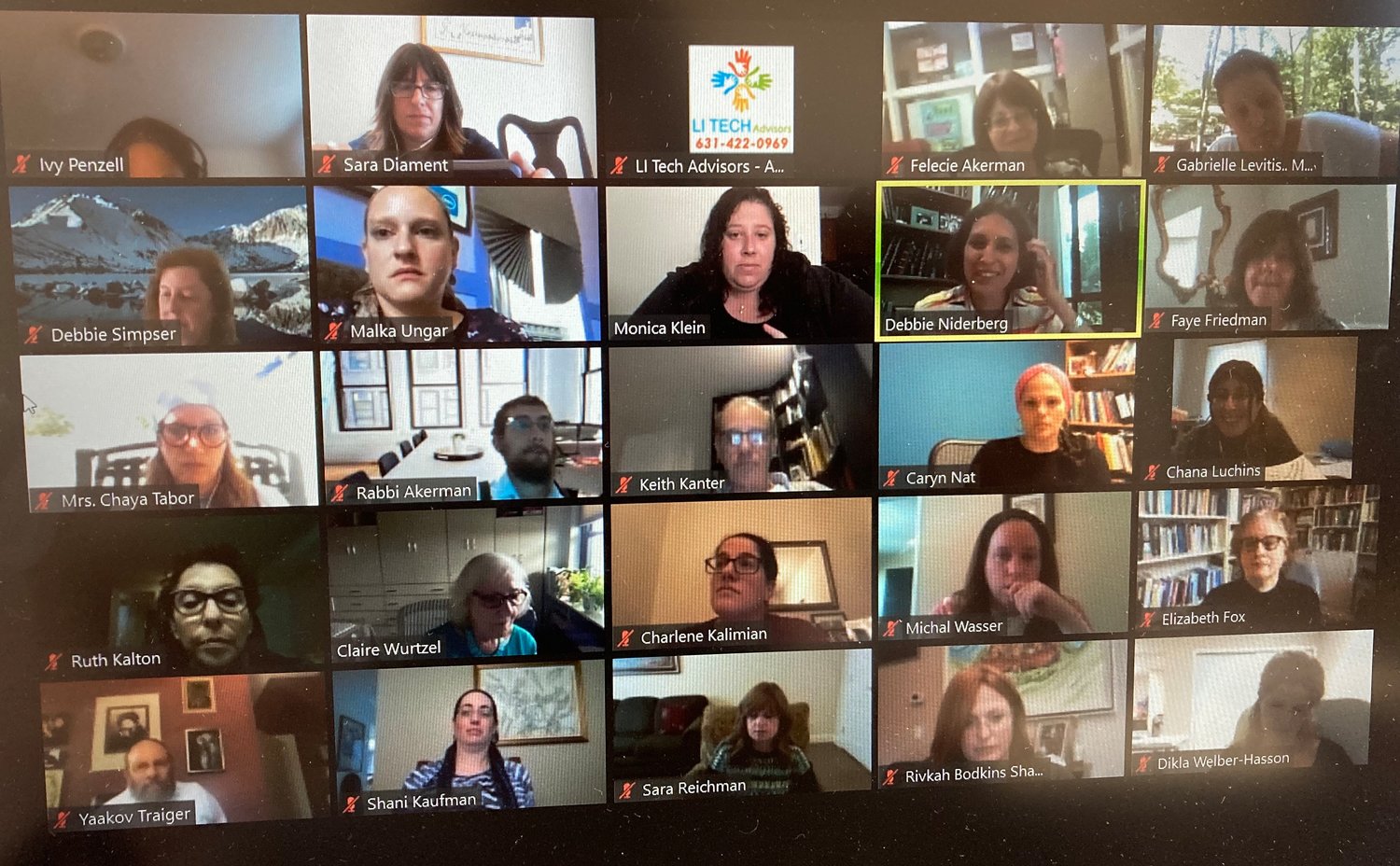Jewish day school educators prep for upcoming school year
Nearly a hundred educators from Jewish day schools in Arizona, Florida, Maryland, New Jersey and New York, including three from schools that serve the Five Towns, took part in a two-week virtual summit that offered a wide range of workshops to help them prepare for the new school year.
Hidden Sparks, a Manhattan-based nonprofit that trains teachers, hosted the seminar in partnership with the Bank Street School of Education, a private non-for-profit educational institution, also in Manhattan, that includes a graduate-only teacher training college and a school with grades from nursery to eighth. Hidden Sparks offers teachers the tools to support struggling students in mainstream Jewish day schools.
The workshops focused on offering educators methods to forge social and emotional learning connections with students, even when teachers and students are not physically in the same classroom. Hidden Sparks officials noted that the last part of the school year was “particularly challenging for children who struggle in the classroom and require individual attention and learning plans,” because of the coronavirus pandemic and the subsequent remote learning that substituted for in-person instruction.
“One of the most important lessons emerging from this pandemic is the critical importance of classrooms that are socially and emotionally attuned,” Hidden Sparks Executive Director Debbie Niderberg said in a statement. “Though our teachers did a fantastic job pivoting in the spring, students have experienced loss, anxiety and disorientation, and teachers will have to be equipped first and foremost with how to welcome students back in the fall — either on site or remote, and how to support them.”
Gila Gensler, Dr. Evelyn Gross and Malka Ungar all agreed that what they took from the summit should boost how they deliver instruction in their respective schools, whether learning is done in person or remotely.
A third-grade teacher at the Hebrew Academy of Long Beach in Woodmere, Gensler has taught for more than 20 years. Recognizing the difficulty of maintaining communication with students over Zoom compared with teaching in the classroom prompted her to attend the summit.
“When learning happens in person, I’m very connected with the students I teach,” she said. “Then all of a sudden you’re on a screen, and the connection felt like it wasn’t working. I learned I need to have that whole-child approach. It’s very important to have that connection to emotional learning and incorporate social-emotional learning with the academics.”
Social-emotional learning, or SEL, seeks to understand students’ emotions and help them manage them, enabling them to set and achieve goals, while feeling and showing empathy for others, establishing and maintaining positive relationships, and making responsible decisions.
Gensler said she is enthusiastic to apply what she has learned. “As scary as it looks, it’s doable,” she said about returning to school. “We’re all going to be safe, as long as we do what we need to do. Before now, I was more afraid. Now I’m excited to get back to make that connection with all new lessons.”
A psychologist and the associate principal of Shulamith Middle School in Cedarhurst, Gross said she attended the summit for only two days, but noted that Shulamith has used Hidden Sparks training previously, and the recent workshops she took part in “spoke to me” and made an impact, calling it “probably the best two days of professional development I almost ever attended” in her 23-year career, including a decade at all-girls Shulamith, which also has an elementary school and a high school.
Calling the facilitator, Lilly Howard Scott, “a breath of fresh of air,” Gross said the workshops were “eye opening and so helpful,” adding she will conduct workshops of her own for Shulamith teachers. “I feel we can certainly help the children feel emotionally safe and connected to each other as the teachers can create a community to feel safe for those who experienced trauma,” Gross said about finding a “common bond to deal with issues in this unprecedented situation,” and overcoming what she said were the biggest challenges to returning to school, in particular “maintaining the safety and security of our student body and faculty, and making sure all our stakeholders are safe to return emotionally and physically.”
Malka Ungar, the educational director for the Torah Academy for Girls in Far Rockaway, noted that heading into a new school year without year-end assessments is overwhelming. “The summit focused on supporting students with social-emotional learning, and there were really great strategies from Bank Street on to how open up with students,” Ungar said, noting one called
Windows and Mirrors to jump-start discussions and help students relate to an experience that they did not have (windows) and talk about an experience that they did have (mirrors). “Such specific strategies reassured us,” she said. “We have look at learning through a holistic lens and continue all the good work that we have been doing.”

 60.0°,
A Few Clouds
60.0°,
A Few Clouds 





